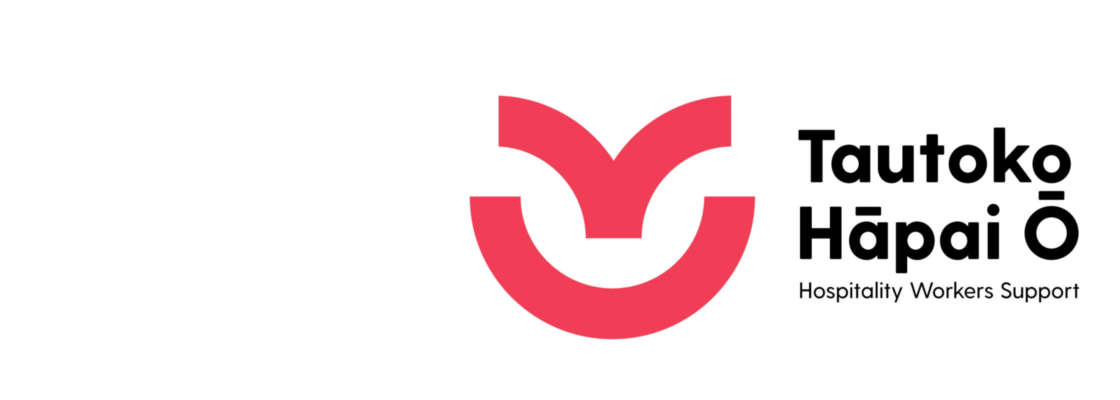
posted on
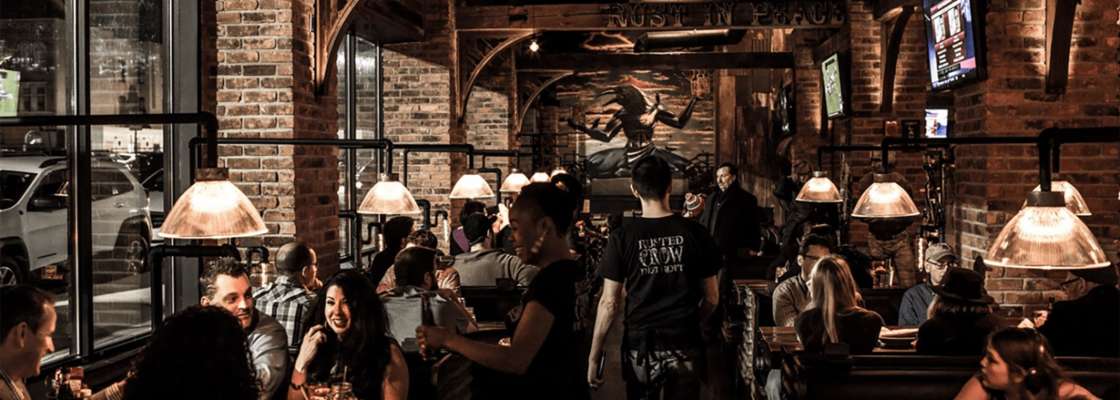
Looking ahead – what will fuel our work over 2021?
posted on
The shape of the hospitality industry may change forever as a result of the events of 2020. Seeing revenues rise and fall and watching our hospitality members try to get back on their feet under the most challenging and uncertain of conditions fueled our work at the Restaurant Association in 2020 and continues in 2021 as we focus on the recovery of the industry.
We are all too aware that preparing for future operational success will need to be conducted carefully and with a plan to continue to adapt in the future if necessary.
Targeted support will be crucial for the industry’s recovery
2021 will continue to present many inevitable challenges, including fewer tourists and international students, low consumer confidence, rising unemployment and reduced access to skilled labour. Support from the Government will be crucial for the industry’s survival and we will continue to strongly advocate for Government to provide the targeted assistance that is required for the industry’s sustainability and recovery.
We were pleased to see some targeted support come through via our partnership with MSD on the new Springboard training initiative, however more assistance is needed. Throughout 2020 we were calling for a number of urgent actions, including rent relief and small business grants to assist those businesses most affected. There will continue to be serious economic challenges in 2021 and targeted industry assistance will be a real need, as much as it was in 2020.
In 2021 another wave of Covid-19 in New Zealand is still a major concern for members, particularly as the majority of our hospitality industry is made up of small owner operator businesses that cannot sustain ongoing closures and restrictions without confirmed Government support in wages, leases and other costs. To front foot any potential returns to heightened alert levels, the Restaurant Association has presented a proposal to Government of alternate guidance and measures at each alert level, to enable businesses to operate whilst still maintaining the health and safety of customers, workers and visitors to the premises. In our proposal we make recommendations for fiscal support to be tied to each alert level to provide our businesses with the ability to plan, knowing what assistance will be available.
Ensuring those in positions of influence are hearing the voice of the industry
In 2021 we will also continue to lobby and advocate to ensure the voices of our industry are heard regarding key legislative policy and changes. Some of the most pressing issues for our industry include immigration reform, vocational education, minimum wage, fair pay, merchant servicing fees and more.
Despite the challenges presented by Covid-19 in 2020, it remained challenging to recruit for skilled staff, particularly as businesses again needed to increase their teams for the busy Summer season. A Restaurant Association survey conducted at the end of 2020 showed that 78 per cent of hospitality businesses trying to recruit skilled workers were finding it difficult to do so. Our staffing shortages are one of the biggest stressors for operators as businesses cannot always operate to full capacity. Often there is a need to reduce operating hours, and in extreme cases, businesses have had to close due to the lack of staff.
Prior to Covid-19 around a third of the industry has been made up of a migrant workforce living and working in New Zealand on temporary work visas. Covid-19 has now made it necessary to reset the employee pathway as these workers are now largely inaccessible to us. The Association already has a number of recruitment and retention programmes underway, such as HospoStart and the Springboard training programme. We would like to see more employer-led training opportunities supported by the Government, with the Association expeditiously recalibrating work plans to include the building of long-term capability and improved resilience training across our industry.
The road ahead is going to be a bumpy one, but there are also opportunities.
Operators identify New Zealanders supporting local businesses and building deeper relationships with customers and our communities as two of the most significant opportunities for their businesses over the next 12 months.
To help build connections with customers, the Association supports the work the Government is doing to rework New Zealand’s food story. The hospitality sector is an important part of this story and in 2021 the Association wants to continue to ensure that we are included in these conversations. We are seeing a rise in conscious consumerism: where customers are driven not by prices or flavours alone, but the origins of their food. Every rohe in Aotearoa has its own food identity. We see pride across the country in locally grown produce and food experiences with whakapapa interwoven back to the region.
We need to carve out intrinsically Kiwi dining experiences that speak to our culture, our whenua and our produce with an accompanying narrative of pride that we relentlessly repeat, through every channel available to us. Targeted investment into telling these community stories will broaden the tourist experience and support the unique nature of manaakitanga in Aotearoa.
The Restaurant Association aims to continue to be positioned to be part of the discussion on behalf of the industry to promote domestic and international tourism.
Creating an industry roadmap for the future
One area of key strategic focus for the Restaurant Association in 2021 is the implementation of the Association’s Hospitality Roadmap which we will work on collaboratively with different parts of our sector and the Government to create a concise pathway for rebuilding and repositioning the sector for the future.
The Roadmap sets out our action plan for the industry for the next three years which includes the following:
- Create workable solutions for legacy issues faced by the hospitality industry.
- Continue to work on partnerships between industry and government.
- Support the development of fit-for-purpose, adequately funded education and training options that produce ready to work, productive, career-focused workers.
- Recreating our national narrative to improve perceptions around our industry as a career.
Now, the single most important issue for the hospitality industry is the sector’s recovery. In planning for the immediate future, operators will need to fiercely protect their cashflows, be ruthless with expenses, be imaginative marketers, and be hygiene experts, all whilst retaining the heart of New Zealand hospitality that the industry is renowned for. It will be no easy job but the Restaurant Association is laser focused on assisting the industry to become stronger and more resilient. Our restaurants and cafés and bars are not only places to experience our incredible food and beverage products but also places to find the joy in human interaction and experience. Our operations offer an antidote to the turmoil going on around us – and this is exactly what the world needs right now.

Covid-19 – 3 community cases announced
posted on
The Ministry of Health announced on 24th January, 2021 that New Zealand has a community case of Covid-19 from a traveler recently returned to New Zealand and residing in the Northland region. On 27th January, 2 additional community cases in North Auckland were also confirmed.
All three people have recently completed managed isolation after returning to New Zealand from overseas.
Ministry officials have release a list of places of interest visited by these three people – listed here. We are closely monitoring MOH advice and will keep members up to date if there are any developments.
All of New Zealand currently remains at Alert Level 1. At Alert Level 1, the messaging from the Government is that everyone must continue to do their bit to keep New Zealand COVID free.
- stay home if you’re unwell and get tested
- sign into places using the NZ COVID Tracer app and enable Bluetooth (encourage your customers to scan in using your QR poster)
- practice good hygiene (includes washing your hands often and coughing into your elbow)
- regularly clean high touch surfaces.
Out of an abundance of caution, the Ministry of Health are asking individuals who visited any of the locations of interest during the relevant timeframes to stay at home, get tested and contact Healthline. Individuals will need to continue to stay at home until they receive a negative test result back.
There is high demand some of the testing centres. It is important that those who need to get tested are able to do so. To ensure adequate testing facilities are available, additional testing centres are being stood up in the Auckland and Northland regions. In addition, testing centres throughout New Zealand are being asked to ensure they have capacity to meet demands. Full details of testing services throughout New Zealand is available on Healthpoint. You can find a list of Northland testing stations here.
People should continue to seek medical care and go to their scheduled medical appointments for other health issues. Medical facilities remain safe, and people should not delay getting the medical care they need.
If members need to review our Covid-19 advice and resources, head to our Covid-19 hospitality hub: https://www.restaurantnz.co.nz/covid-19-hospitality-hub/, or call our Helpline on 0800 737 827.
New wine qualifications
posted on
New Zealand’s wine story has been one of resounding success over the last decades. Our wine business is now a $2 billion dollar sector, and offers new career opportunities especially in sales and marketing, at the cellar door, in food and wine tourism and enhancing customer experience in restaurants, cafes, bars and hotels.
‘We are thrilled to announce two new NZQA qualifications that are set to transform education about wine and beverages in New Zealand. The focus is on building knowledge of New Zealand and international wine regions through tasting and research and at the same time consider how successful regions manage their tourism and food and wine experiences,’ comments Celia Hay, Director of the New Zealand School of Food and Wine.
‘There is much to learn from understanding what makes a wine region successful and famous as a destination to visit. We see this knowledge as being important and extremely helpful to build our own New Zealand Wine destinations and enhance their visitor experience.’
Wine tasting provides a unique opportunity to actually taste and savour the characteristics of the wine region, in a glass. Whisky is the same as it reflects a style that is associated with the Highland region of Scotland or the smoky peat style that defines whiskies from the Scottish Isles.
The qualifications will also look at the business side of running wineries and restaurants and graduates will develop confidence to use digital marketing applications, understand promotional and sales platforms and techniques – all of which comprise the sales and marketing toolkits of successful businesses.
NZ Certificate in Professional Wine Knowledge Level 5 and the NZ Diploma of Wine Management Level 6 will be available as both full time or as a part time programme with some remote learning options for people living outside of Auckland. They embed the WSET Level 2 and 3 Award in Wine and the WSET Level 2 Award in Spirits. NZ residents will be eligible for student loans and allowances and Free Fees if they meet the criteria.

Announcing FaB2 hospitality business insurance – save up to 20% and clarify your cover
posted on
Crombie Lockwood has developed an exclusive next-generation, industry-tailored insurance package for Restaurant Association members, with today’s needs in mind.
In Covid recovery mode every Restaurant Association member is looking for cost efficiency and business security, that’s why FaB-2 refines all of the proven insurance covers but with added, exclusive coverage and the cost and cover flexibility to pick and choose what you include (and what you don’t).
Crombie Lockwood call it “right-sized” insurance based on a comprehensive no-cost insurance review to improve the cost efficiency and precision of your current insurance cover. For example:
- you can reduce cover levels when you are carrying lower stocks;
- you can review gross profit numbers and make sure you are insuring at realistic sums (why pay more than you need to?);
- reconsider your motor vehicle covers;
- make sure your overall insurance plan takes account of your current trading conditions;
- you can include employment disputes cover.
We are excited to have Crombie Lockwood join our family of supporters, coming on board as a Major Supporter of the Association in 2021.
Interested in finding out more about Fab2 business insurance?
[CLICK HERE TO LET US KNOW AND WE’LL ORGANISE SOMEONE TO GIVE YOU A CALL].
The objective is to save money without compromising your business security.

Regional Jobs Boards
posted on
Our Facebook group jobs boards were set up to support the Tautoko Hāpai Ō workers support initiative – we encourage all members to signup and post jobs that you wish to fill. Our job boards are free to use and a great way to connect directly with employees.
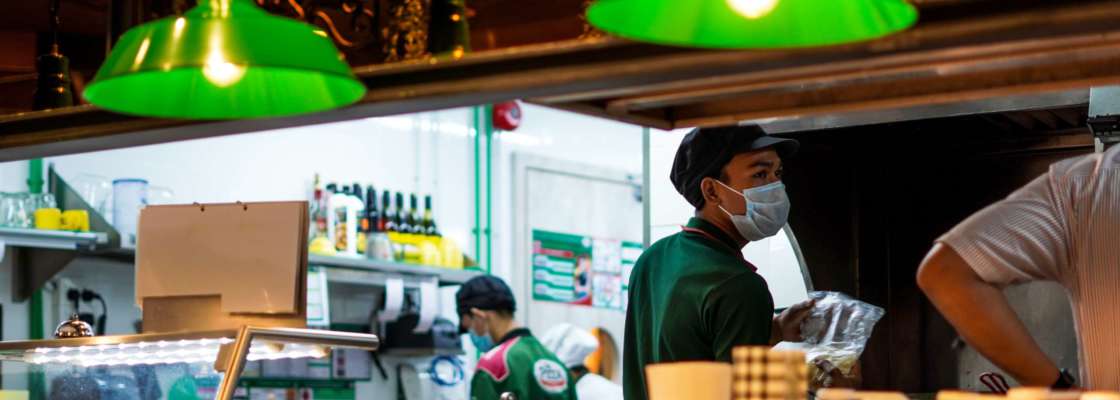
Comprehensive visa changes allow onshore migrants to help fill labour shortages
posted on
The Restaurant Association is pleased that the Government has responded to the industry’s labour shortage needs by extending the visas for existing migrant workers for 6 months, along with other short term measures. This will take some of the pressure off those businesses struggling to find staff.
We have been advocating around the skill shortages members are faced with and this shows that the Government is taking our requests seriously to support the hospitality industry.
Many migrant workers currently in New Zealand will be able to stay and work here for longer, following adjustments to visa settings announced by Immigration Minister Kris Faafoi. The Government have explained that the economy is bouncing back better than expected and we are seeing labour shortages across many industries.
The visa setting changes will run well into 2021 and aim to provide certainty for employers and workers. The Government continues to assert that their priority remains to help get New Zealanders into jobs and encourages employers to continue focusing on longer-term workforce planning, training, and improving wages and conditions to attract a local workforce. Our new Springboard programme is one of those initiatives to help address training and retention of staff in the hospitality industry.
“With the labour market outlook being more optimistic, we are implementing a range of changes to ensure the migrant workforce already in New Zealand can supplement employers’ efforts to recruit New Zealanders who have lost jobs due to COVID. These changes will allow employers to retain their existing migrant workforce, they will still need to prove that no New Zealanders are available before hiring new employees,” – Immigration Minister Kris Faafoi
What is changing?
Six month extension for employer-assisted work visa holders
Employer-assisted work visa holders (and their partners and dependent children) who have a job and whose visas are expiring from January to July 2021 will have their visas automatically extended by another six months.
Postponed stand down period for low-paid Essential Skills visa holders
The stand-down period, during which low-paid Essential Skills visa holders have to leave New Zealand, will be postponed until January 2022. The stand-down period means that Essential Skills visa holders earning less than the median wage (currently $25.50) must leave New Zealand for 12 months after having worked here for three years before they can return.
Retain 2019 median wage of $25.50/hour for immigration settings until at least July 2021
Immigration New Zealand will continue to use the 2019 median wage of $25.50 per hour for immigration settings until at least July 2021 at which point the median wage will rise to $27 per hour.
Working Holiday visas extended by 6 months
Working Holiday visas will be extended for six months, and restrictions will be relaxed on the maximum duration of work permitted, allowing Working Holiday visa holders to continue working in any industry they choose. Working Holiday makers will no longer be transferred onto a Supplementary Seasonal Employer work visa when their working holiday visa expires. Migrants already on an SSE visa will be able to continue working for the horticulture and wine sectors, or apply for an Essential Skills visa if they find alternative qualifying work.
Immigration New Zealand will contact all eligible visa holders.
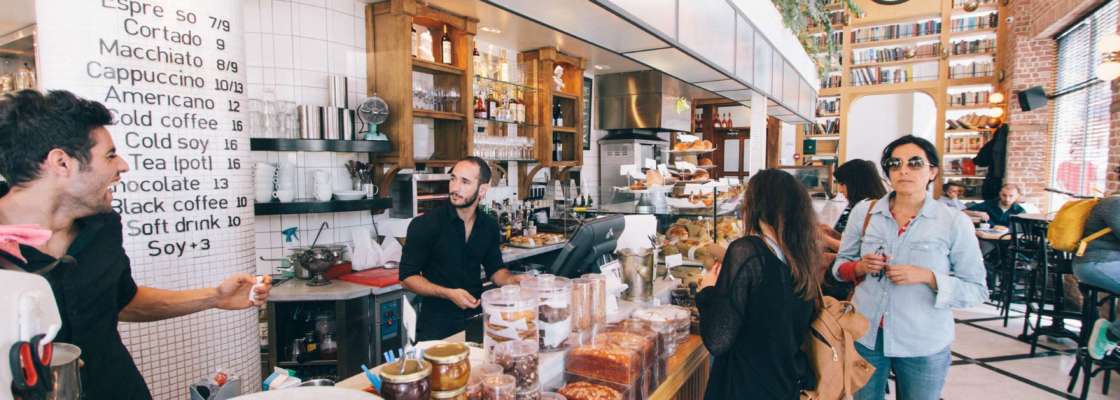
Government listens to Hospitality industry needs -announces COVID-19 resurgence plan for summer
posted on
The Government has announced its plan for how it will deal with possible community cases over the summer period.
We are very happy that the Government has listened to our calls for action, which we presented to them recently through our alternative ‘Alert Level framework’. To have this pro-active communication of the measure that will be in place at heightened alert levels will hopefully help put your minds at ease and allow for future planning if there were to be a COVID-19 resurgence.
COVID-19 Resurgence Plan
The Government’s outlined approach will be to respond quickly, managing any community cases lead by New Zealand’s elimination strategy for COVID-19.
- Government agencies have worked closely with local Government, iwi and community leaders as well as Civil Defence and Emergency Management and private sector to ensure a fully coordinated response.
- The health system is standing ready and supply chains are stocked. On call personnel will be available.
Extensive contingency plans are in place, developed around 3 broad scenarios.
COVID-19 Business Continuity Payments
The Government aims to provide certainty to businesses and workers about what support will be available in the event of a resurgence of COVID-19.
A new Resurgence Support Payment is being introduced to help businesses directly affected when there’s a move to Alert Level 2 or above for a week or more. This is the type of targeted assitance we have been asking for all along and hope it goes a way to help pay fixed costs for those affected.
“This recognises that some businesses face one-off costs or impacts to cashflow when we step up an Alert Level to follow public health advice. The payment is structured to provide most support to smaller firms who are most likely to face cashflow issues but will be available to all businesses and sole traders.” – Grant Robertson
The payment would include a core per business rate of $1500 plus $400 per employee up to a total of 50 FTEs ($21,500). Firms that experience a 30% drop in revenue over a 14-day period will be eligible.
Wage Subsidy Scheme
Whether there’s a regional or national move to Alert Levels three and four a wage subsidy scheme will be put into place. The Wage Subsidy Scheme has been very effective in keeping people in work so far with more than $14 billion paid out to protect 1.8 million jobs.
A New Short-term Absence Payment will also be introduced to cover eligible workers needing to stay at home while awaiting a COVID-19 test result. This will be a one-off payment of $350 to employers to pay workers who need to stay home while awaiting a test or while someone who is their dependent is doing so, in accordance with public health advice.
Cabinet has also asked the Minister of Justice to revisit options on future commercial tenancy negotiation support and this will be discussed by Cabinet early next year.
- Further information can be found at the following web pages:
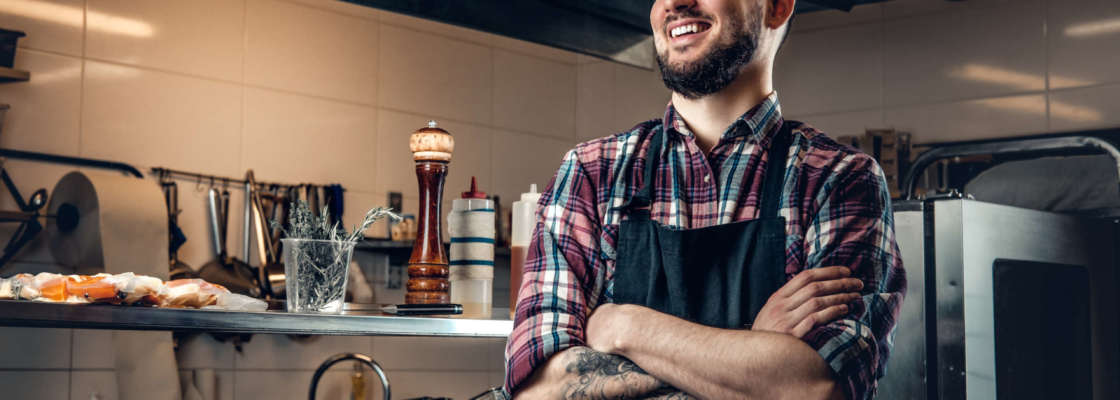
A year of two halves – hospitality revenues continue to rise, then plummet
posted on
2020 Hospitality Report shows industry in continued growth, before taking a sharp decrease
Our 2020 Restaurant Association Hospitality Report finds that nationwide sales for the hospitality industry reached an all-time high of $12.1 billion year ending March 2020, before plummeting, posting just $1.7 billion for the period April – June 2020, a decline of more than 40 per cent.
In 2019 New Zealand’s hospitality sector achieved record sales of over $11.7 billion increasing to $12.1 billion for the year ending March 2020. This represents sales growth of 3.3 per cent over the previous year, which follows three years of significant growth (4.2 per cent from 2018-2019, 3.6 per cent from 2017-2018 and 9.7 per cent from 2016-2017).
Sales growth carried across the industry, with restaurants and cafes recording the highest sales increase in dollar terms. Over half of every dollar spent dining out is spent at a restaurant or café, which has more than 51 per cent market share.
Annual sales for this dominant sector grew four per cent year end 2020, which in dollar terms translates to an increase over the year previous of $236 million.
Takeaway and food to go also realised annual sales growth of 4.1 per cent, the highest for the sector, while catering services also saw a 4.0 increase posting sales of $956.8 million.
Sales in 2020, after March, do not paint such an optimistic picture as under Level 4 lockdown, sales revenue for the industry plummeted, posting just $1.7 billion for the period April to June 2020, a decline of more than 40 per cent compared to the same period last year.
However, trading conditions improved overall in the third quarter of 2020. Whilst the industry overall had a 3.1 per cent decline in sales over the same quarter in 2019, many regions recorded very positive sales growth, including Tasman (up 29.3 per cent over 2019), Kaikōura (19.4 per cent), Marlborough (18.2 per cent) and Northland (17.8 per cent).
We’ve noted in the report that it’s still very much a mixed bag out there. Whilst some businesses are recovering well, many others are still experiencing significant losses. Establishments in tourist hotspots as well as Auckland CBD are still down on last year with the trend of city centre workers staying home and loss of tourist dollars continuing to cause significant reductions in trade.
The industry was overall still in decline in the third quarter of 2020, compared to the same quarter in 2019. However, takeaways recorded a positive 8.4 per cent sales growth over this period – the only sector to record a positive change.
For all regions it will still take some time to recover from the declines experienced from April – June, with Auckland and Queenstown continuing to be the two most affected regions.
The road ahead may be a bumpy one but there are also opportunities and with careful planning operators can make it through while building a strong and sustainable business. Operators identify New Zealanders supporting local businesses and building deeper relationships with customers and our communities as two of the most significant opportunities for their businesses over the next 12 months.
The 2020 Hospitality Report is free for members to download (login first to download). The Report can also be purchased here.
The shape of the hospitality industry may change forever as a result of the events of 2020. Preparing for future operational success will need to be conducted carefully and with a plan to adapt in the future if necessary.
Breakdown by region
Consumer spending remains highest in Auckland, Wellington and Canterbury. These three regions all enjoyed annual sales of more than $1 billion per annum.
The Waikato region also now records annual sales of just under $1 billion, reaching $946 million. Regionally, the largest percentage sales increases from 2019 to 2020 were in Northland (up 10.8 per cent in 2020), Taranaki (up 7.5 per cent), and the Marlborough region (up 7.2 per cent).
From April to June 2020, the 40 per cent decline in revenues was experienced by all regions. With its reliance on international tourist revenue, Queenstown-Lakes recorded the largest decline (down 67.8 per cent from April to June 2020 over 2019) and Kaikōura experiencing a 66.7 per cent decrease.
While trading conditions have improved overall in the third quarter of 2020, it will take some time to recover from the declines experienced from April to June.
Remuneration
Industry wage rates increased by just under 5 per cent in 2020, the results of the 2020 Restaurant Association remuneration survey have revealed. In some cases, employee wage increases reflect the efforts of industry operators to recognise the efforts of staff amid the difficult events of Covid-19. However, while the industry continues to grapple with the financial uncertainty of Covid-19, many employers have currently indicated that balancing remuneration rates with business viability is becoming increasingly challenging.
Key Challenges
The shape of the hospitality industry may change forever as a result of the events of 2020. Preparing for future operational success will need to be conducted carefully and with a plan to adapt in the future if necessary. However, while the Covid-19 pandemic has dealt the hospitality industry with uncharted challenges, it also presents opportunities for operators.
A recent member survey indicated that the top three concerns are further increases to the minimum wage, another Covid-19 outbreak and maintaining profitability.
Many hospitality businesses have already adapted throughout the year, finding creative ways to change in order to survive. A recent industry survey identified that more than half of the industry respondents have reduced their opening hours permanently.
To survive, and to thrive, operators have also indicated they are focusing on running leaner, more efficient operations. Forty-two per cent have made changes to the menu, choosing to simplify, or reduce the menu to help maximise efficiencies.
Last minute changes to alert levels, paying fixed costs and finding skilled staff rank as the top three operational issues.
But with crisis comes opportunity, and operators report New Zealanders supporting local business, becoming a leaner business and developing deeper relationships with community as opportunities for the year ahead.
Dining Out research reveals the impact the Covid-19 outbreak has had on consumer’s daily lives, helping operators to understand what drives consumer behaviour in our current environment.
Diner insights
The 2020 research reveals the impact the Covid-19 outbreak has had on consumer’s daily lives, helping operators to understand what drives consumer behaviour in our current environment.
Responses were collated from almost 800 customers, who revealed that eating out plays an important role in our daily lives.
Forty-four per cent of consumers eat out at restaurants or cafes one to three times per week. In addition, 40 per cent indicate that they order food to take away (pick up or home delivery) one to three times per week.
Although the majority of customers say that they feel safe dining out at restaurants and cafes, even during heightened alert levels, those aged 55-64 felt safest (58 per cent said they felt completely safe dining out at alert levels 3 or 2), followed by those aged 25-34 (55 per cent).
When asked what measures are most important to make customers feel safe when dining in heightened Covid-19 alert levels, Obvious additional cleaning measures were highlighted as the key factor offering some reassurance, followed by businesses having hand sanitiser available for customers to use.
More than half of the Dining Out survey diners say they will dine out less as a result of Covid-19 – 49.8 per cent will choose to eat more locally and 47.2 per cent say they will choose to dine at places they feel safe to eat in.
People aged 18-24 currently eat out the most frequently with 69 per cent saying they eat out one to three times per week and 3.5 per cent saying they eat out more than four times. Pre-pandemic 14 per cent in this age group ate out more than four times per week, with another 65 per cent eating out one to three times on average. Over the next year, those aged between 45-54 are most likely to dine out less often than before – higher than any other age group. This age group is also most likely to choose to dine more locally in the future.
The 2020 Hospitality Report is free for members to download (login first to download). The Report can also be purchased here.

Restaurant Association launches new Springboard programme to address hospitality skills shortage
posted on
A new joint initiative between the Ministry of Social Development, and the hospitality industry has been launched to fill the critical skills shortage in the hospitality industry.
The Hospitality Springboard is a pilot initiative that will initially work with around 80 members to upskill and train their employees so businesses can retain staff and keep them employed.
The Government-sector initiative will bring employers and employees together to nurture current talent and encourage career development in hospitality.
It will provide wellbeing support, wage supplements and wrap-around training, ranging from three to 24 months across a range of courses – from short entry-level courses to certifications such as Licence Controller Qualification (LCQ), leadership training and up to two years NZQA Level Four courses, such as chefs training.
The Restaurant Association has worked with MSD on the creation and roll out of the programme.
This is a critical time for our industry, coming off one of the most challenging trading years in recent history. This is welcomed support. Hospitality has been in growth for more than 10 years and yet we’ve struggled to find the necessary workers to fill the demand.
This year’s challenges have been intensified by the border closure which has meant the usual overseas workers that would ordinarily fill those gaps are no longer available to us. The time is ripe to ensure we are able to attract and train a new wave of recruits to sustain our industry for the future.
A recent survey of Restaurant Association members found 78 per cent had difficulty recruiting staff for their business. 84 per cent said they had not seen an increase in suitable New Zealanders applying for the roles.
The Springboard Programme follows on the heels of our successful HospoStart programme, another joint initiative between the Ministry of Social Development and the Restaurant Association which trains job seekers into a new career in hospitality. The programme has trained and supported 780 of workers into the industry since it launched in 2015.
The Springboard programme officially launched on 11th December.
REGISTER YOUR INTEREST IN THIS PILOT PROGRAMME
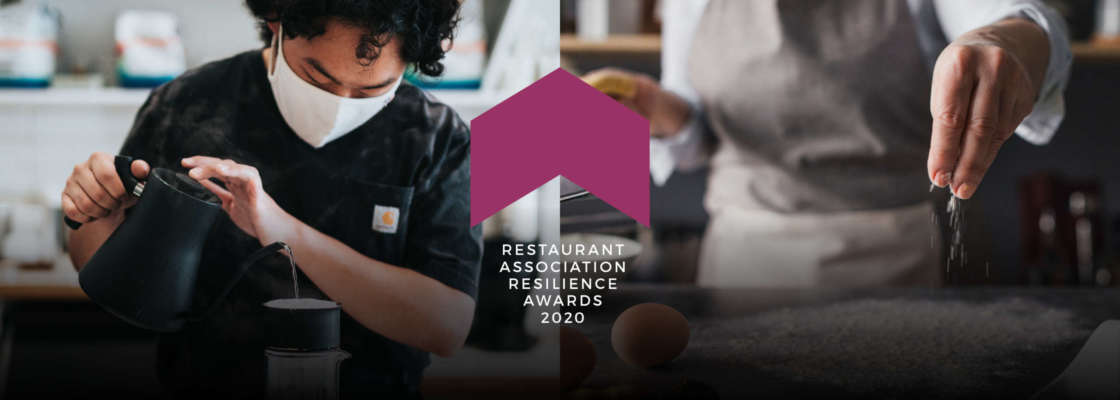
Further recognition for individuals and businesses making a difference
posted on
The Restaurant Association have acknowledged those who have been influential and made a significant contribution to the hospitality industry in response to 2020’s Covid-19 pandemic with the announcement of the Restaurant Association Resilience Awards winners for Queenstown, Waikato, Taranaki, Manawatu and Hawke’s Bay regions.
Presented by the Restaurant Association of New Zealand and Association partners Eftpos NZ, OneMusic and RA Lexis ComplyHub, these regional resilience awards recognise those people and businesses that have gone above and beyond to keep their people employed, help their communities and keep their businesses alive all whilst playing their part in stamping out the virus.
180 degree pivots won over the judges in the Eftpos NZ innovation awards.
In Manawatu the award went to the Blind Finch in Ohakune for transforming its once popular hamburger joint and bar into a fully operational bakery.
Seeing the writing on the wall for restaurants and bars, owner Derek Allomes, devised a plan seeing the new national operational requirements as a unique opportunity. Derek’s plan to become an essential service has won over the locals with its freshly baked bread becoming a daily favourite.
Queenstown innovation winner Fishbone exchanged fresh fish for fried chicken becoming Love Chicken while borders remain closed.
The restaurant had previously derived 75 per cent of its income from international visitors but was struggling to sell enough to the local community to maintain freshness. The owner reinvigorated a former fried chicken business and Love Chicken was born.
Waikato winner Good George shifted their entire operation from beer and gin production to hand sanitiser.
Kristy Gregory, Eftpos NZ, acknowledged the winners, “We are passionate about hospitality and its people and proud to be supporting the industry at a time when they need it the most. New Zealand just wouldn’t be the same without the cafes, restaurants and bars where we grab our morning flat whites, quick midday bite to eat and cheeky after work bevvies. We are honoured to be able to acknowledge and recognise the people and businesses who have innovated and adapted in the most challenging of times”.
Those that rallied around for their local communities were recognised in the RA Lexis ComplyHub Outstanding Local Hospo Hero award.
When Hawkes Bay restaurant owner James Beck decided to create a home delivery business for his restaurant Bistronomy, he went one step further, pulling together an expert team of developers and designers to create Hawkes Bay at home – a resource for all hospitality business owners in the region.
Waikato award recipient Montana Events and Catering worked with the local council to serve up 65 thousand meals to those in need during the pandemic.
Max Flinkenberg, RA Lexis ComplyHub says, “We are excited to support the hospitality industry and recognise the success of those contributing to the liveliness of hospitality across the country. We know first hand that when you put information into the right hands you give people the power to shape the world. Congratulations to all our local hospo heroes for your resourcefulness and commitment to the hospitality industry”.
Regional recipients of the OneMusic Outstanding Community Spirit were quick to redeploy staff and repurpose food to feed those in need.
Taranaki winner Rahul Radharkrishnan of Bach on Bluewater put together low cost lunchboxes for essential workers delivering them to hospitals and workplaces around the region.
Food rescue service Just Zilch were the recipients of the Manawatu award for working closely with the hospitality industry throughout the pandemic to repurpose food to feel local people in need.
Restaurant Association CEO Marisa Bidois says, “Over the year we’ve been overwhelmed by some of the stories we’ve heard – of people and businesses around the country with amazing community spirit; those who have innovated and changed; and those who have found silver linings in the most challenging of times”.
“It has never been more important for diners to get out and try the fantastic array of local dining spots, so we hope these awards inspire the nation to support their locals.”
Greer Davies, Director of OneMusic said “If there’s been one silver lining from 2020, it’s been the privilege of witnessing the spirit, compassion and manaakitanga shown by people and businesses, both large and small. It hasn’t been an easy ride, and like the hospitality sector, the music community has been massively impacted this year. Thanks for making things a little easier for your community and congratulations.”
The winners for these regions were announced online on Monday, 7 December*
*Wellington and Canterbury awards were announced as part of the Wellington and Canterbury Hospitality Awards held on 2nd and 3rd November. Auckland winners were announced on 16th November.
Restaurant Association Resilience Awards Winners
Waikato
- Eftpos NZ Outstanding Innovation – Good George Brewery
- OneMusic Outstanding Community Spirit – Hayes Common
- RA Lexis ComplyHub Outstanding Local Hospo Hero – Montana Events & Catering
Rotorua
- Eftpos NZ Outstanding Innovation – Matt Cooper, Social Eats
- OneMusic Outstanding Community Spirit – Scope Cafe Restaurant Association
- RA Lexis ComplyHub Outstanding Local Hospo Hero – Ray Singh, Indian Star Tandoori Restaurant
Taranaki
- Eftpos NZ Outstanding Innovation – Barbara Olsen-Henderson, Lemonwood Eatery
- OneMusic Outstanding Community Spirit – Rahul Radhakrishnan, Bach on Breakwater
- RA Lexis ComplyHub Outstanding Local Hospo Hero – Craig & Kate Macfarlane, Macfarlane Consulting Group and Strategy Collective
Hawke’s Bay
- Eftpos NZ Outstanding Innovation – Malo Restaurant
- OneMusic Outstanding Community Spirit – Jeremy Bayliss, PAK Asian Kitchen, Westshore Beach Inn, Rogue Hop, Napier Brewing, Econo Lodge
- RA Lexis ComplyHub Outstanding Local Hospo Hero – James Beck of Bistronomy for ‘Hawke’s Bay at Home’
Manawatu
- Eftpos NZ Outstanding Innovation – The Blind Finch, Ohakune
- OneMusic Outstanding Community Spirit – Just Zilch
- RA Lexis ComplyHub Outstanding Local Hospo Hero – Scott and Yvette Kennedy, Nero Restaurant
Queenstown
- Eftpos NZ Outstanding Innovation – Fishbone / Love Chicken
- OneMusic Outstanding Community Spirit – Fusee Rouge Café, Cromwell
- RA Lexis ComplyHub Outstanding Local Hospo Hero – Grant Hattaway, Blue Kanu and Hattaway Consulting Group
Wellington
- Restaurant Association of NZ Outstanding Innovation – At Yours by Visa Wellington On a Plate
- Restaurant Association of NZ Outstanding Community Spirit – Kāpura
- Nova Energy Outstanding Local Hospo Hero – Jackie Lee Morrison, The Pandemic Pack
Canterbury
- Restaurant Association of NZ Outstanding Innovation – Riverside Market owners Kris Inglis, Mike Percasky and Richard Peebles
- Restaurant Association of NZ Outstanding Community Spirit – The Vagabond Chefs
- Nova Energy Outstanding Local Hospo Hero – Tristin Anderson, Smokey T’s
Auckland
- Loaded Reports Outstanding Innovation – Paris Butter at Home
- Restaurant Association of NZ Outstanding Community Spirit – Sid and Chand Sahrawat – Sidart, Cassia and Sid at The French Café
- Nova Energy Outstanding Local Hospo Hero – Krishna Botica
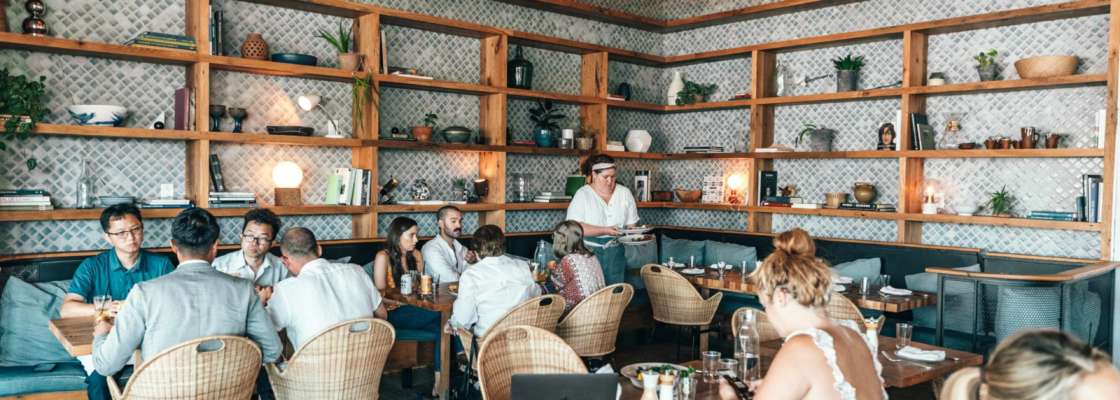
New Zealand’s strategy for protecting crowded places
posted on
As we know, New Zealanders value the ability to congregate, socialise and connect alongside others. This can involve working in and visiting crowded places, like our hospitality businesses. Unfortunately, the nature of crowded places also means our spaces pose extra risks to people, as they can be a target for attacks.
The Government has prepared a strategy, and a series of guidelines and tools (see the New Zealand Police Crowded Places website), to help you and other members and operators better protect your spaces from potential attacks.
Even the most robust protective security plan may not be enough to stop an attack on a crowded place occurring. However, well-considered and well-tested protective security measures can reduce the likelihood of an attack occurring and lessen its consequences.
The strategy intends to preserve the public’s use and enjoyment of crowded places, while ensuring that their safety has been considered. It enables a consistent approach to protecting crowded places throughout New Zealand and uses methods that are in proportion to the threat. Making crowded places safe from attack is consistent with Te Tiriti o Waitangi (The Treaty of Waitangi), which reflects the relationship between Māori – tangata whenua – and the Crown, and ensures a principle of working in partnership . The document explains what crowded places are and what risks they pose. It outlines the responsibilities of, central and local government, owners and operators of crowded places, public security providers and the public in relation to keeping crowded places safe.
New Zealand’s strategy to protect crowded places from attack rests on four elements:
• building stronger partnerships
• better sharing of information and guidance
• implementing effective protective security and
• increasing resilience.
Owners and operators are responsible for assessing the risks and vulnerabilities of their crowded places. Understanding the main factors that influence where terrorists target attacks will help owners and operators assess and manage risks.
New Zealand Police has published a series of guidelines and tools on this subject (New Zealand Police Crowded Places website). All of these tools are designed to help owners and operators of crowded places understand how vulnerable their locations may be.
The tools available include self-assessment and protective security assessments. These tools will guide users through a range of questions to provide guidance on next steps required in order to improve the security of their crowded place.
In addition there is advice, resources and posters on what to do in the unlikely event you or your staff or customers are involved in an attack (ESCAPE. HIDE. TELL).
Find out more about measures you can take for protecting your business. Download Protecting Our Crowded Places from Attack: New Zealand’s Strategy.